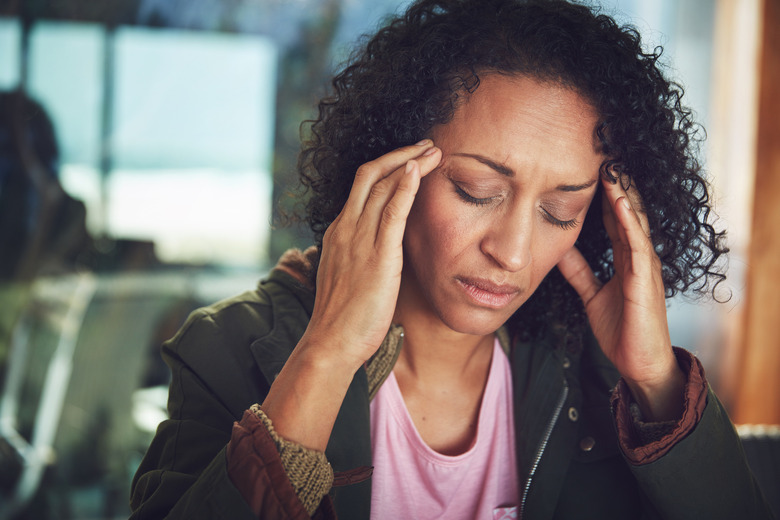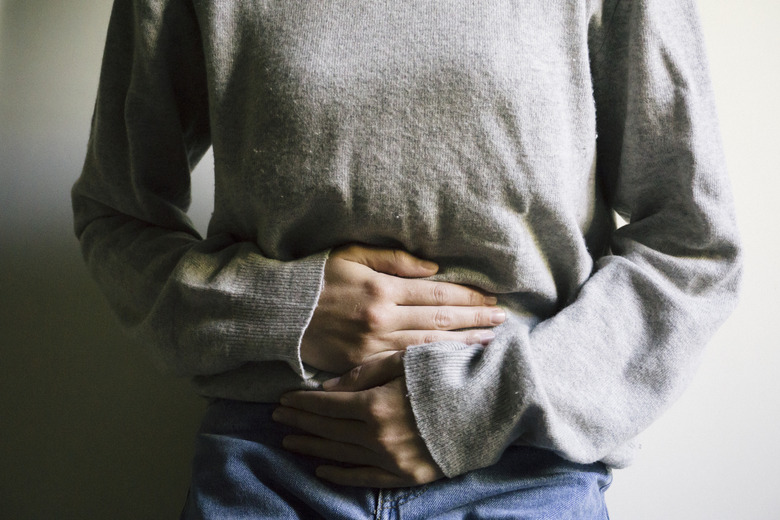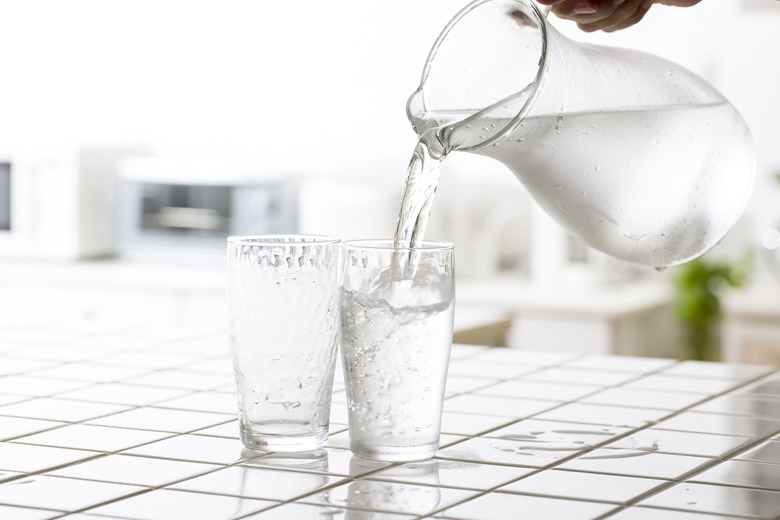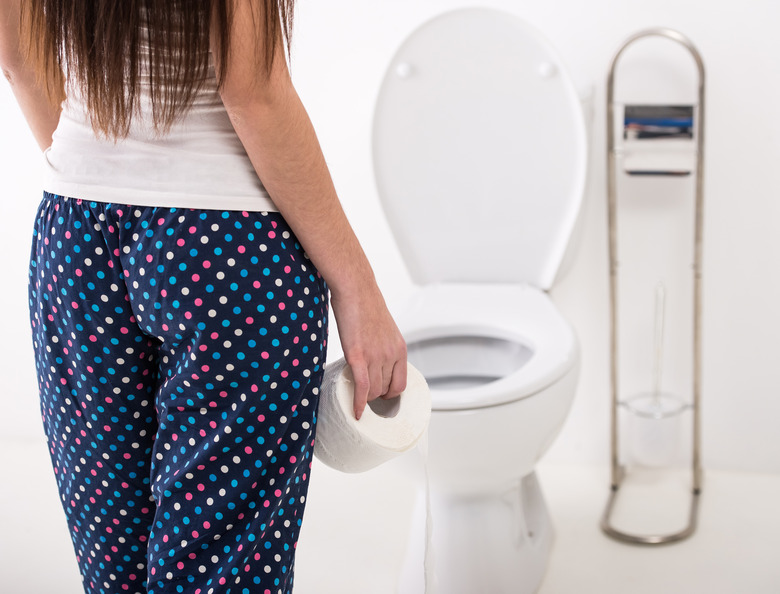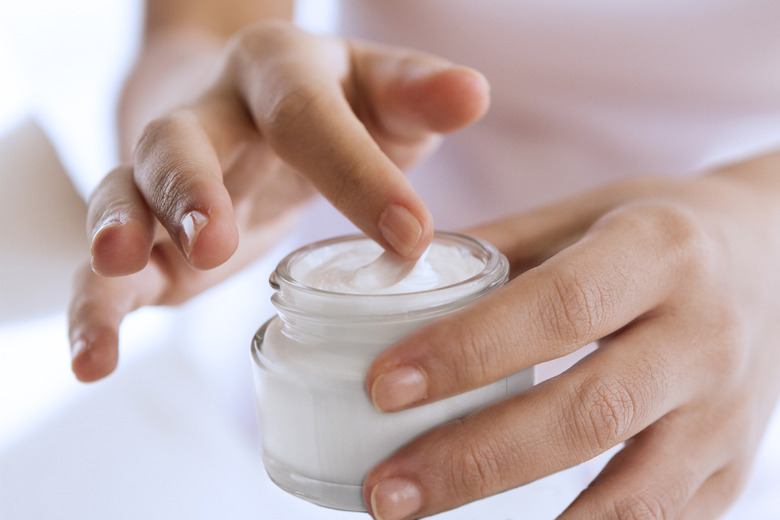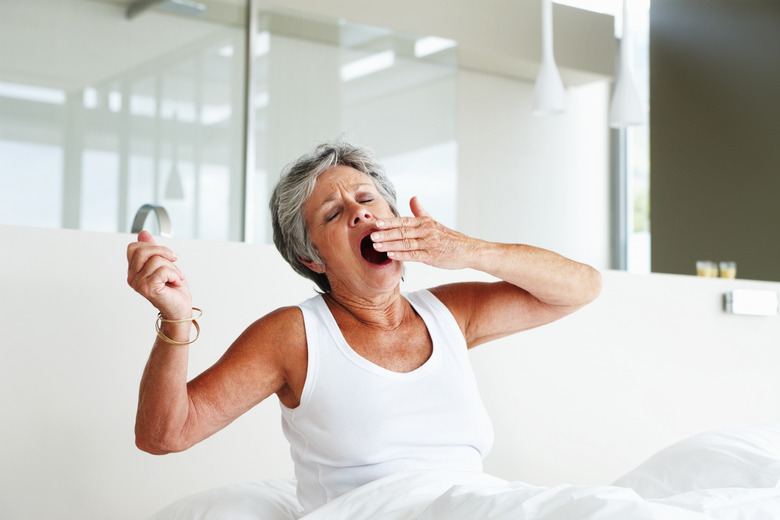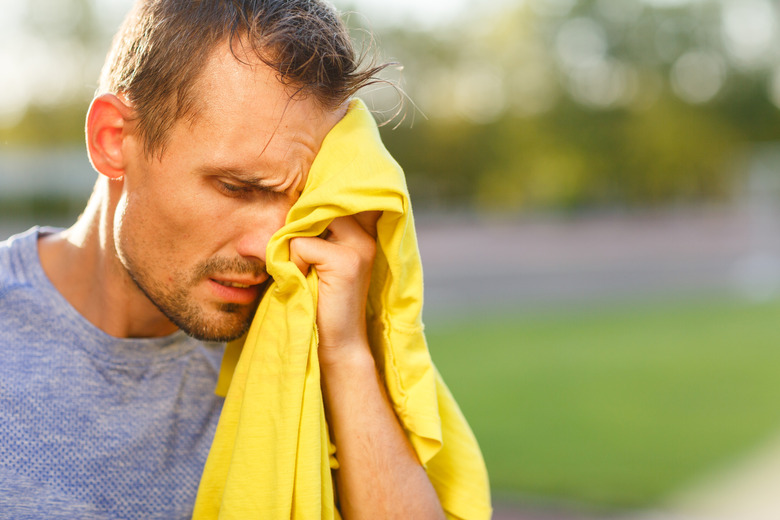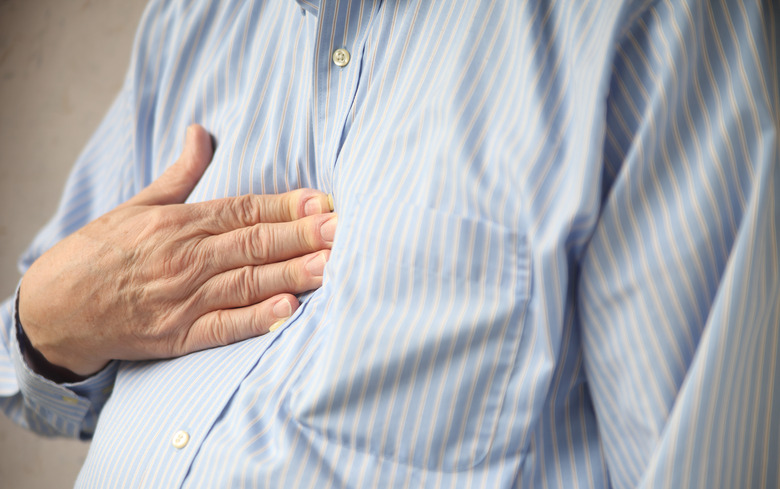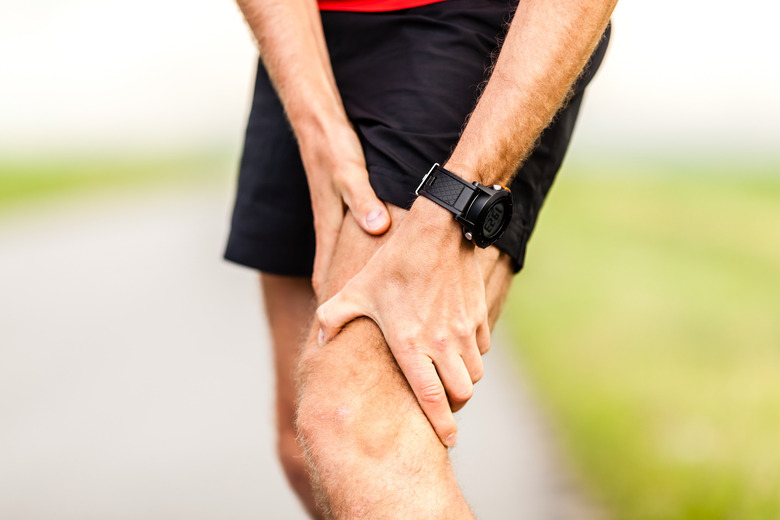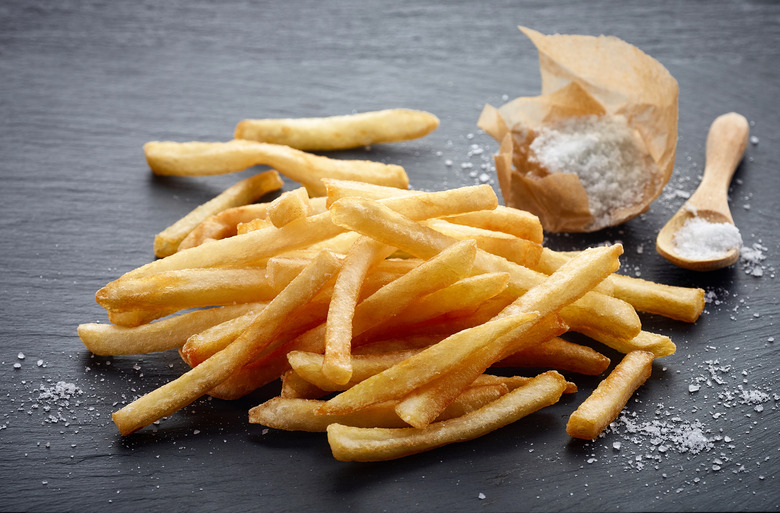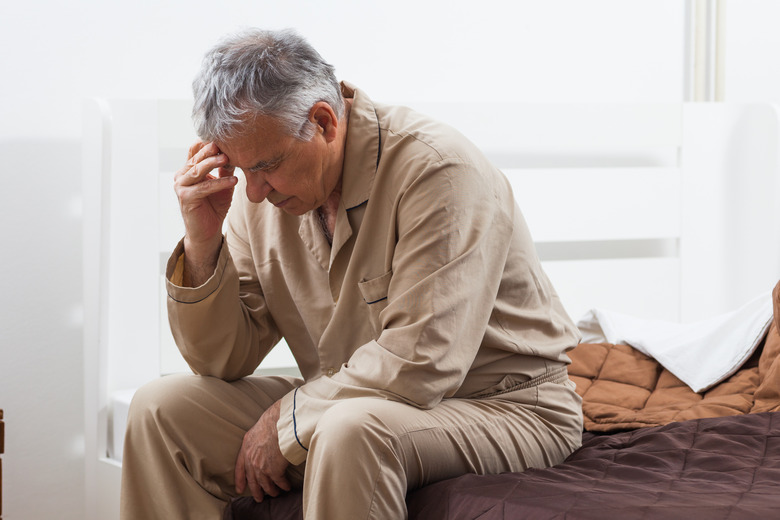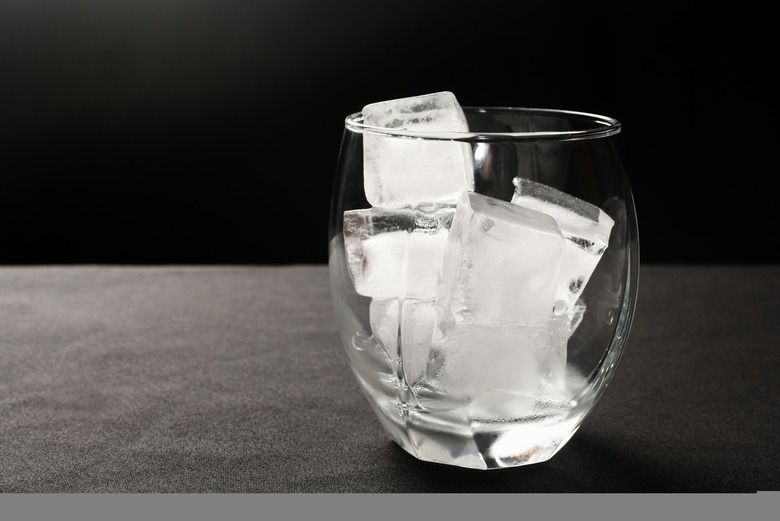What Your Body Is Trying To Tell You With These 20 Symptoms
If you're experiencing a severe health issue, by all means please don't try to diagnose yourself. Make an appointment with your doctor to get a reliable answer to what's going on. But there are also some smaller signs and symptoms that something might be wrong. Maybe you're always thirsty, for example, or you have patches of itchy, dry skin. If you know what may be causing these symptoms, you can make lifestyle changes to prevent them before they worsen.
Here's the thing: Your body is really smart. The little nagging discomforts you feel are often your body's way of communicating with you. But often, we miss these warnings completely. In some cases, a minor symptom could point you toward a simple lifestyle change or alteration to your diet that could help you feel better.
Some nutrient deficiencies, for example, can become apparent with certain symptoms — if you have the tools to recognize them. You might consider adding certain nutrients into your diet in greater quantities or taking a vitamin. Learning what these physical messages mean is one of the many things you can do to improve your health and quality of life. Here are 20 of the most common symptoms and what they mean.
Acne
There are countless causes for breakouts and blemishes, but some instigators are more common than others. Acne can worsen if you are under a lot of stress, if you're not using the right skin care products, or if you eat an excess of one of these acne-causing foods. A breakout can also be a sign that you need to wash your face more often or that you're dehydrated.
Always Cold
Buried beneath blankets, but somehow still shivering? If you're the one who's always bundled up when everyone else feels fine, there could be something internal causing you to feel cold. An underactive thyroid could be to blame for your inability to warm up. Other causes could be a hormonal imbalance or a need for more nutrients — there's a reason we crave dense foods in the winter! Comfort foods contain fats and other compounds that your body uses to keep you warm.
Bloat
It's not always a bad sign to be bloated. If your stomach feels uncomfortable every time you eat a certain food, you could have some form of intolerance. Ask your doctor if you think you might be sensitive to certain foods. However, sometimes bloating occurs for other invisible reasons. It can be a side effect of invisible processes going on while you digest. Some healthy foods such as broccoli and Brussels sprouts often cause bloating when you eat large quantities of them, simply because your stomach needs to work harder to break them down. Often, it's far from serious. Everyone feels bloated now and then. Try this trick to calm it down.
Chapped Lips
Chapped lips are annoying, but sometimes they're impossible to avoid. A nasty winter season, for instance, can leave your lips feeling irritated and dry. Lip balm is a good temporary solution, but dry lips are a sign that the rest of your body needs hydration, too. Make a point to drink more water to counteract the uncomfortable symptom.
Chocolate Cravings
Many people crave chocolate when they're sad; amazingly, science shows that snacking on dark chocolate may actually make you feel happier. Dark chocolate also has many antioxidants and other health benefits. It makes sense that we crave this rich food; the best way to treat a chocolate craving is to go ahead and indulge it.
Cold Hands
Ever noticed how some people just always have cold hands? Oftentimes, this is simply a side effect of your body's internal temperature regulation and not any reason to be concerned. But chronically cold hands could be a sign of something more serious, especially if your hands tend to turn blue or otherwise change color, as well. According to the Mayo Clinic, blood circulation problems can cause hands to feel cold even when the outside temperatures are warm. These problems with circulation could be happening for a number of reasons, but it's best to let a doctor help you discern which you're experiencing.
Constant Urination and Thirst
Do you feel like you're always thirsty, but are somehow always drinking water? Unquenchable thirst can occur when your body doesn't absorb enough water, regardless of how much you drink. There are extreme cases of the condition, and in some cases the feeling is an early sign of autoimmune conditions or diabetes. But for most people, this feeling can be resolved by balancing the amount of sodium you're taking in and monitoring your caffeine. Sodium is directly related to water retention in your body. And if you're drinking too much coffee, you may be experiencing the symptoms of dehydration as a result.
Constipation
One of the reasons the keto diet might not be a great choice? It could make you really constipated. Your body uses fiber from foods that the keto diet cuts out, such as grains, fruit, and carbohydrate-rich vegetables, to keep things moving smoothly. Constipation is most likely a sign you need more fiber in your diet. It could also be a sign you're not eating enough food — constipation is one of the most common side effects of a low-calorie diet.
Dry Eyes
If you work a desk job, your dry eyes are probably related to the large amount of screen time. But if you have spent a good amount of time away from technology and they're still itchy and painful, consulting a doctor could be wise. Dry eyes could happen from drinking too much alcohol, hyperthyroidism, or an autoimmune disease.
Dry Skin
In the wintertime, dry skin is often at its worst. But flaky, dry skin affects some people all year round. Often, dry skin is a result of dehydration overall. Staying hydrated in the winter can be more difficult than other times of year, but it could really help your skin feel better. Hydrating with electrolyte-filled drinks could help nourish your skin from the inside out. One of these food-based remedies for dry skin could do the trick, too.
Energy Crash
Ah, the dreaded 3 p.m. slump. Groggy and tired feelings after lunch can really put a wrench in your productivity. But luckily, it's pretty easy to combat. Energy spikes and crashes are telltale signs of a fluctuating blood sugar level. Ideally, your blood sugar would remain relatively stable throughout the day, ebbing and flowing as you eat your meals. However, if your most recent meal involved an excess of carbohydrates without any fats or protein, you run through that energy really quickly. To fight the crash, add some protein and fat to your meal or snack on something satisfying when the exhaustion hits.
Fatigue
Sleep is probably one of the most important aspects of our health — yet most Americans aren't getting anywhere near enough. The health consequences of a lack of sleep are actually pretty scary. Before adding more anxiety to your day by worrying what might be causing your chronic fatigue symptom, get some rest. For those that have no problem getting enough sleep but still feel exhausted, something else might be going on. Other causes for fatigue could be not eating enough, anemia, over-exercise, depression, or dehydration.
Frequent Sweating
Your doctor might say that your excessive sweating is harmless, and in most cases it is — but we bet you'd disagree. You're wiping your hands before every handshake. You refuse to remove your jacket, no matter the temperature of the room, for fear that your pit stains will offend those around you. Dealing with profuse perspiration is no breeze — but luckily, there are some things you can do about it. Anxiety could make your sweating worse; your first step might be taking steps to mitigate anxiety in the long-term. Other causes could be a thyroid problem or hormonal imbalance. Ask your doctor about ways you can test your hormone levels and treat if necessary.
Headaches
There are too many potential causes for headaches to say for sure, but these are the most common culprits. Dehydration can cause headaches, as can a lack of food. A hangover can cause a headache, or it could be caused by changes in sleeping patterns or tiredness.
Heartburn
Also known as acid reflux, heartburn is most often a symptom of digestive distress. The burning feeling in your throat comes from stomach acid churning and making its way back up your esophagus — yuck. You might be overeating one or more of these foods that often cause heartburn. Some other reasons for the sudden pain could be eating too close to bedtime, eating too large of a meal, or drinking too much alcohol.
Muscle Cramps
Sudden cramping can be incapacitating and awkward. If you find you're keeling over while walking, an electrolyte imbalance could be to blame. Hydrating consistently can help. This is the same reason why exercise causes cramping for some people. After losing all that water to sweat, rehydrating is essential.
Salt Craving
You actually need salt to live — you could just be sodium deficient. It's also possible that you're dehydrated. Since you need electrolytes to absorb water, craving salt could be your body trying to get hydrated.
Trouble Sleeping
Of course, insomnia could be triggered by anything from anxiety to the temperature of the room. However, when it comes to food there are a few things you can do to increase your chances of getting rest. One is the timing of your meals. Eating late at night ramps up your energy, making you less inclined to feel sleepy once its bedtime. Additionally, feeling hungry or nutrient-deprived can keep you up. Make sure you have a full, nutritious dinner at least two hours prior to bedtime if you find you're having trouble falling or staying asleep.
Wanting to Chew Ice
This weird craving isn't something to shrug off. A strong desire to chew ice is a clear sign of an iron deficiency, which could also make you more susceptible to colds and cause fatigue. Have you recently gone vegan? Iron is one of those nutrients often overlooked in a plant-based diet, since red meat no longer supplies the mineral. Some other sources include lentils, spinach, and pumpkin seeds.
Weird Taste in Your Mouth
Overdosing on vitamins has been known to cause an odd, metallic taste that lingers for days. If you're eating enough nutritious foods, you might not need a multivitamin at all. Taking a multivitamin alongside other supplements could be overloading you with nutrients you don't really need. The taste will dissipate once the vitamins flush from your system, unless you keep popping the useless pills. However, this could also happen if you've recently been sick with a cold. Instead of racing to the doctor in a panic, try treating your cold first with one of these natural remedies.
More From The Daily Meal:
This Is What Can Happen if You Don't Drink Enough Water
35 Symptoms You Shouldn't Ignore
Signs You Need Your Thyroid Checked
Ways You Didn't Know Your Body Changes After 50
Unexpected Signs of an Unhealthy Heart
